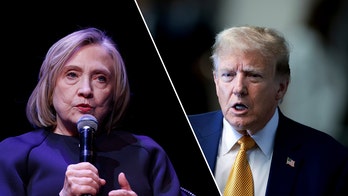The Supreme Court's decision on former President Trump's immunity ruling has sent the New York v. Trump case back for further proceedings, raising questions about the scope of the ruling and its potential impact on Trump's trial.
Following the Supreme Court's historic ruling on former President Trump's immunity claim in the federal election interference case, the matter has been officially returned for a trial. This is standard court procedure. A month after the Supreme Court's July 1 decision, the case has been formally remanded to the appeals court, which will then return it to Judge Tanya Chutkan.
"ORDERED, on the court’s own motion, that this case be remanded to the District Court for further proceedings consistent with the Supreme Court’s opinion," the Aug. 2 filing reads.

SCOTUS Ruling Impacts New York v. Trump Case
In the coming days, Judge Chutkan is expected to establish a schedule for the parties to discuss the application of the SCOTUS ruling in the ongoing prosecution. Open court hearings are anticipated, after which the judge will determine the extent to which the Special Counsel's evidence can be used in the trial.
Last month, the Supreme Court ruled in Trump v. United States that a former president has substantial immunity from prosecution for official acts committed while in office, but not for unofficial acts.

SCOTUS Ruling Impacts New York v. Trump Case
In a 6-3 decision, the Court sent the matter back down to a lower court, as the justices did not apply the ruling to whether or not former President Trump is immune from prosecution regarding actions related to efforts to overturn the results of the 2020 election. The ruling came shortly after a New York jury found Trump guilty on all counts of falsifying business records in the first degree stemming from Manhattan District Attorney Alvin Bragg's investigation.
Special Counsel Jack Smith charged the former president with conspiracy to defraud the United States; conspiracy to obstruct an official proceeding; obstruction of and attempt to obstruct an official proceeding; and conspiracy against rights. Those charges stemmed from Smith’s investigation into whether Trump was involved in the Jan. 6 Capitol riot and any alleged interference in the 2020 election result.

SCOTUS Ruling Impacts New York v. Trump Case
Trump pleaded not guilty to all charges last summer.
The Supreme Court's decision has raised questions about the extent of Trump's immunity from prosecution. The ruling did not specifically address whether Trump's actions related to the 2020 election fall within the scope of his official duties as president.
Legal experts have expressed differing opinions on the matter. Some believe that the Court's ruling provides broad immunity to Trump for his actions while in office, while others argue that the ruling is more narrowly tailored and does not shield Trump from prosecution for potentially criminal acts.
The New York v. Trump case will provide a test case for the scope of the Supreme Court's ruling. The outcome of the trial could have significant implications for the future of presidential immunity and the prosecution of former presidents.










